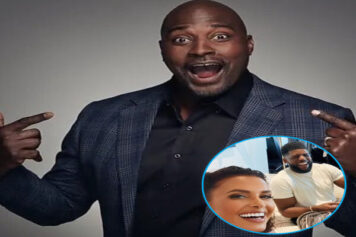No matter where you live in this country, you have heard the name Django, the gunslinger that actor Jamie Foxx turned into the rage of the holiday film season. Whether you liked director Quentin Tarantino’s spaghetti Western or not, Django proved a man to admire. He was what black men were not in the late 1850s: cocksure, defiant, unchained.
But we need not look to a white director’s movie to find a black man to admire. The history of politics and sports has given us plenty of these men, and if any one man in sports had a little Django-ism in him, the man’s name was Jack Johnson.
The trouble is, we as black folks know less about Johnson and his turn-of-the-20th-century exploits in boxing than we know about Django. And the pity of it? We seem not to care.
Even today, seven years since the PBS documentary Unforgivable Blackness: The Rise and Fall of Jack Johnson chronicled his life inside and outside of boxing, the list of people who admire Johnson is short. Call him the forgotten champ; the title would be appropriate. For no black boxer has been as discounted as Johnson — or as forgotten; no man in the sport endured as much racism and faced as much ridicule to achieve his success as he; and no fighter from boxing’s yesteryear deserves to be remembered more than he, not if history means much to us.
Indeed, history does mean much to me, because Johnson was one of the first athletes of color I discovered as a boy in the 1960s.
Like Jesse Owens, Harrison Dillard, Larry Doby and Jackie Robinson, Johnson is somebody that blacks nowadays ought to re-discover. Few pro athletes embody the soul of a people better than he did. In the face of death threats, he forged ahead unafraid of the thing that tends to preoccupy our thoughts: what white people think of us. Johnson never cared; his life was too focused on just being Jack Johnson, which turned into a task too burdensome for a battalion of men.
In a white world that wrote all the rules, Johnson fit in the way Yao Ming fits into a smart car. In some people’s minds, it might have seemed wiser if Johnson had at least tried. Since he didn’t, he found himself labeled an enigma, a man whom blacks and whites hoped would vanish like the Queen of Spades in three-card monte. Labeling Johnson an enigma, however, is to disrespect people who march to their own bandleader.
Some black people always stand poised to slap a tag on things that puzzle us. That often looks easier than trying to search for understanding. And perhaps, in Johnson’s case, no understanding could readily be found. No one might have even tried had Johnson not captured the grandest prize in sports: the heavyweight champion’s belt.
At the dawn of the 20th century – decades before boxers like Joe Louis, Muhammad Ali, Sonny Liston, Floyd Patterson, Larry Holmes, Mike Tyson and Evander Holyfield – no black fighter had ever worn the belt, and white America wasn’t about to stand idle and allow the symbol of its athletic superiority to rest around a black man’s belly. They would bend and reshape their rules to keep their championship away from men like Johnson, Sam Langford or Joe Jeannette.
But you have little choice but to admire Johnson, or any other man, for keeping his focus on a prize. He spent two years in the early 1900s chasing champion Tommy Burns, badgering the Canadian into acting like a champ. You can’t claim to be the best, Johnson told anybody who would pay him any mind, if you haven’t beaten the best — him.
On December 26, 1908, in Sydney, Australia, he finally got Burns in the ring. He proved his boasts were grounded in reality. Sneering in glee, he punched Burns mercilessly from Round 1 to Round 14. The Sydney cops had to step in and stop the fight. But this was no fight, not even in the blood-and-gore sense of boxing. The sport had never seen as one-sided a championship bout as this one.
Yet the America of 1908 refused to call this black Texan its champ. As journalist Jack London, an iconic but racist figure in American literature, wrote afterward: "But one thing remains. (Retired champ James) Jeffries must emerge from his alfalfa farm and remove that smile from Johnson’s face."
What troubled white people like London most was how Johnson wore their title. His grin, his arrogance and his insatiable hunger for the high life riled them, and his penchant for loving their women fanned their racism. Their anger boiled over into racial violence and murder in cities across the United States, and it led to the first search for a "Great White Hope."
And what did Johnson think of this search?
Not a damn thing.
By all accounts, Johnson had figured out how to live life on his terms, not on theirs. He never sided with convention, even though that might have been the prudent course. He argued gladly and openly with critics, black or white. He once claimed he’d earned more than $1.5 million in the ring, and he bragged about how he’d spent his money on the horses, on a mouthful of gold teeth, on fast, flashy cars and on even faster, flashier women.
"There have been countless women in my life,” he once said. “They have participated in my triumphs and suffered with me in my moments of disappointments … they have praised me and loved me and they have hated and denounced me."
Among those countless women, he slept with one who would prove his undoing. Since white society couldn’t find its "Great White Hope" quickly enough, it did one thing that men of color everywhere are all too familiar with: It sicced the legal system on Johnson.
At the time, the country had Jim Crow laws that discouraged black men from — how might I put it? — f***ing white women. These anti-miscegenation statutes were, in part, Draconian measures to maintain the remnants of slavery. Johnson, though, never let these laws sate his appetite for white flesh. Consequently, he found himself caught in their legal web, a former lover helping set the trap. Rather than turn and twist in our injustice system, he fled to Europe. He left behind few people to argue his side. His rainbow coalition of critics simply said good riddance, for they always viewed Arthur John "Jack" Johnson, the son of a slave, as the worse kind of nigger: loud, profane, unfit to wear a heavyweight champion’s belt.
But I’m not one of Johnson’s critics. I will point out that it took testicular fortitude to cross that racial divide in the early part of the 20 th century. Yet what I have come to admire most about Johnson is his unflagging desire to enjoy his life.
Against this backdrop of hatred, deceit and bigotry, Johnson traveled the world. He partied in Paris and Havana; he fought bulls in Barcelona; he wrestled in Sweden. Yet he remained steadfast in his fondness for America, and he wouldn’t let white folks rob him of it. They could take his money, his freedom and his livelihood, but they couldn’t take his self-styled principles. He returned to the United States even though he knew he’d face time behind bars. In coming home, Johnson proved he wasn’t the sort of man white people could saddle like a black stallion and ride wherever they wanted. His kind of inner strength is a rare quality in a man, and Johnson was indeed a rarity. He’d have been the same rarity even had he been born a Martian. He is ours, though — someone for us to remember.
So I’d caution against dismissing Johnson as a grotesque, chauvinistic parody of an athlete, a man of no real stature. For contrary to what his harshest critics contend, he was more than a "happy darkie." He was not a vaudeville sideshow with no redeeming social conscious, nor was Johnson somebody with no proud legacy for other men of color to grab hold of.
As we dissect the man’s life, we don’t have to greet its excesses with high-fives, for that might be too unseemly. But we should be wise enough to embrace this strong, insolent black man for a trait that too few of his kinsmen possess: the willingness and the unwavering resolve to look into the white world’s eyes and never flinch. To do that today is to show that we are black men who understand the cards the game of life has put on the table. It is a more winnable game, as Johnson showed his comrades of color, when we are the ones shuffling the deck.
For that reason alone, we should be grateful for black men like Jack Johnson, even if we can’t imagine ourselves sitting in a theater, munching buttered popcorn and cheering for this real man who was just as unchained as Django.



